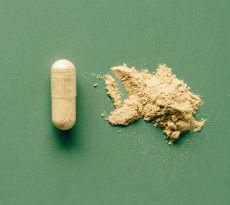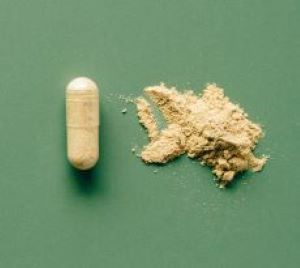5 Ways Supplements Help in Increasing Muscle Size


When gaining muscle mass and strength, eating protein-filled foods and a strength training routine is the best place to start. Consistency also plays a part. After all, you can’t take too many “cheat days,” but you can hack your muscle growth by taking FDA-approved supplements.
How Supplements Increase Muscle Growth
Taking supplements can help maximize your gains alongside resistance training, but some nutrients are better than others. To read about the essential supplements needed for muscle growth and advice on how to recover after a workout, check out Cellucor’s guide.
1. Supplements Balance Your Macronutrients
It’s hard to find a muscle-building supplement that doesn’t include protein. As a macronutrient (along with carbs and fat), you can find protein in any natural growing food, but beans, chicken, and chia seeds have the most protein per gram. However, most protein-filled foods are fatty.
The higher the protein content, the higher the fat content and some bodybuilders may avoid eating too much fat to ensure their gains are visible. Balancing your macronutrients takes a lot of math, but a supplement fills those gaps and ensures you’re getting the nutrients you need.
2. Supplements Keep You Fuller
Protein has another function beyond nutrients: it keeps you full. An increase in daily protein consumption can reduce cravings by 60% because it can improve the function of dopamine, the hormone that controls addiction. When you reduce your junk food intake, you gain more muscle.
Another interesting side-effect of eating or supplementing protein is a boosted metabolism and increased fat-burning potential. Although that may make you hungrier, protein can help you with willpower beyond addiction. You’ll have an easier time overeating on cheat days.
3. Supplements Increase Energy Output
Healthier individuals have more energy as a whole, but supplements that contain creatine literally produce extra energy for your muscles. Creatine is a naturally occurring amino acid that helps humans move and use their muscles, but an extra dose can improve this function.
When supplemented during a period of resistance training, creatine leads to a greater increase in muscle performance, strength, and mass. Joggers, cyclists, and other endurance athletes often use creatine to get an extra boost of energy before and during their workouts.
4. Supplements Improve Long-Form Endurance
Any athlete can tell you that an extra burst of speed is widely different from overall endurance regardless of sport. For example, an athlete that can crank out five 200lbs bi-cep rows is looking to bulk, while an athlete lifting 20 150lbs bi-cep rows without a break is working on endurance.
Short- and long-term endurance is essential for any athlete, but beta-alanine focuses on the latter. Athletes who can last just a little longer during their workouts are able to build muscle faster as a rule. Just don’t over-exert yourself, or you’ll stall your progress.
5. Supplements Reduce Muscle Soreness
After a tough workout, you’ll likely experience muscle soreness as a consequence of going above and beyond. Some soreness is a good thing, as it means your muscles are doing their job to repair and grow stronger, but too much pain or prolonged recovery isn’t healthy.
Pushing yourself too far can lead to injury, but if your regular workouts lead to a 2-3 day recovery, you’re likely lacking nutrients. A BCAA supplement can help suppress muscle damage and soreness and reduce recovery time for athletes struggling in these areas.
Key Takeaways
With proper supplementation, athletes are able to gain muscle mass and endurance much faster than through diet and exercise alone. However, it’s important to remember that supplements can’t outrun a bad diet and aren’t a shortcut to prolonged muscle growth.





